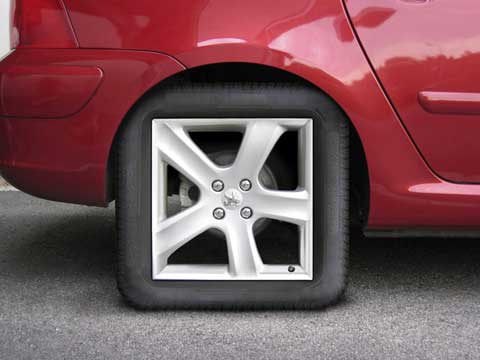Jbird
Kick Henry Jackassowski
My Chevy Cruze LTZ had the original tires, Michelin somethingorothers, on the car until last week, when I bought a set of Kelly Eagle All-Season for it.
The Michelin's were a 40k tire, and I had 55k on them, with still an 'ok' amount of tread life on them. I certainly wanted new tires on the car by the time snow starts flying, so I bought the Kelly tires. Researching them there was an online review from Autoweek? or some similar 'name' auto page, where they liked the tire, said it actually did really well on ice, had very good cornering grip, etc.
Anyways, with the old OEM Michelin's, I was getting 34, maybe 35 highway (usually closer to 34).
With these new Kelly tires, I just took a trip to St. Louis, since I have this week off. I filled up my tank in the town where I work (about 13 miles on my way to St. Louis) as their gas is cheaper there than in my town.
Anyways, 372 miles after filling up, at exit 30 outside St. Louis, my fuel needle was a bit under half-way, so I decided to stop and fill up, not wanting to be low on gas while driving around a big city. It took 9.799 gallons to fill back up. So 38 MPG !!! 3 to 4 mpg better than what I have been getting.
The Cruze has a 15 gallon tank, so I drove from south and west of Battle Creek, MI to St. Louis, MO on 2/3 of a tank of gas, basically
The Michelin's were a 40k tire, and I had 55k on them, with still an 'ok' amount of tread life on them. I certainly wanted new tires on the car by the time snow starts flying, so I bought the Kelly tires. Researching them there was an online review from Autoweek? or some similar 'name' auto page, where they liked the tire, said it actually did really well on ice, had very good cornering grip, etc.
Anyways, with the old OEM Michelin's, I was getting 34, maybe 35 highway (usually closer to 34).
With these new Kelly tires, I just took a trip to St. Louis, since I have this week off. I filled up my tank in the town where I work (about 13 miles on my way to St. Louis) as their gas is cheaper there than in my town.
Anyways, 372 miles after filling up, at exit 30 outside St. Louis, my fuel needle was a bit under half-way, so I decided to stop and fill up, not wanting to be low on gas while driving around a big city. It took 9.799 gallons to fill back up. So 38 MPG !!! 3 to 4 mpg better than what I have been getting.
The Cruze has a 15 gallon tank, so I drove from south and west of Battle Creek, MI to St. Louis, MO on 2/3 of a tank of gas, basically



